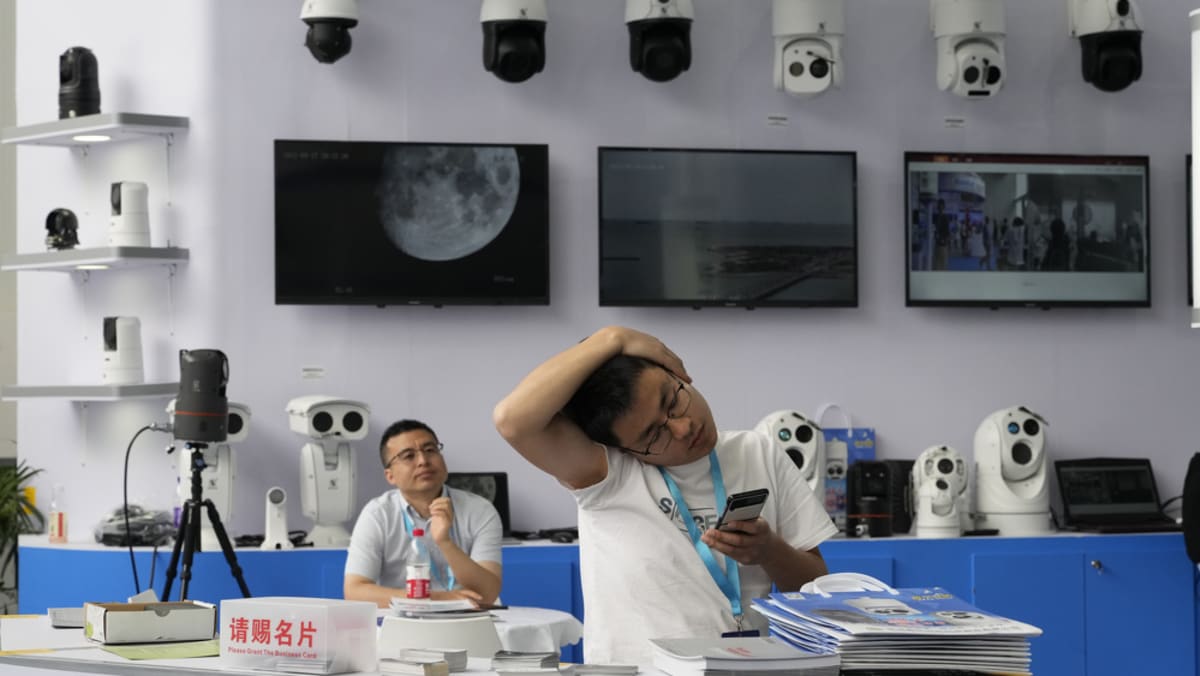Asia
‘Much needed’: China’s ban of hidden cameras in hotels, dorms lauded by netizens amid voyeurism fears

Understanding the Growing Scourge of Voyeurism Crimes
The Global Rise of Voyeurism-Related Offenses
Voyeurism crimes have emerged as a disturbing and increasingly prevalent issue worldwide, raising significant concerns about privacy, safety, and justice. The misuse of technology, particularly surveillance cameras, has enabled perpetrators to invade the privacy of individuals, often without their knowledge or consent. This phenomenon has become a distressing reality in many countries, with cases reported in public spaces, workplaces, and even private establishments. The psychological and emotional impact on victims cannot be overstated, as they often feel violated, vulnerable, and distrustful of their surroundings.
South Korea, for instance, has faced a wave of spy cam-related crimes that have left women particularly unsettled. The widespread installation of surveillance cameras in public areas, while initially intended for safety, has been exploited to target unsuspecting individuals. Women in South Korea have expressed heightened fears of being filmed without their consent, turning routine activities like commuting or shopping into anxiety-inducing experiences. This issue has become a significant public safety concern, prompting calls for stricter regulations and penalties to deter such crimes.
Similarly, China has seen a surge in voyeurism cases, particularly in hotels and guesthouses. Guests have discovered hidden cameras in unexpected places, such as air vents, bedside lamps, and within walls. These incidents have not only violated the privacy of individuals but have also eroded trust in the hospitality industry. The use of hidden cameras has become a tool for exploitation, leaving victims feeling powerless and exposed.
The Public’s Response to New Regulations
In response to these growing concerns, China recently introduced new rules aimed at curbing voyeurism crimes. These regulations, which came into effect on April 1, have been met with widespread support from the public. Chinese social media platforms, such as Sina Weibo, have become a hub for discussions on the topic, with users sharing their hopes for a safer and more just society.
One user, under the handle myluoluo, expressed relief that the new rules were finally implemented, stating, “This (news) has been a long time coming. Caseloads shouldn’t be just numbers; many women have been very affected by this, and hopefully, this will bring about change and action.” Their sentiment reflects the broader frustration among victims and advocates who have long awaited concrete measures to address the issue.
Another user shared their optimism about the potential impact of the new regulations, emphasizing the need for accountability. “Perpetrators always try to deflect blame or deny their involvement,” they wrote. “Now, with official rules stating an outright ban, no one can escape criminal activity.” This sentiment resonates with many who believe that clear legal frameworks are essential to holding offenders accountable and preventing future crimes.
The Importance of Accountability and Deterrence
The introduction of stricter regulations in China has been welcomed as a much-needed step toward addressing the scourge of voyeurism. Weibo user Bang Xiao summed up the collective sentiment, stating, “I think this is a much-needed response that carries a strong message—that perverts should not be allowed to get away with their crimes and must face the consequences.” The implementation of these rules sends a clear message that voyeurism will no longer be tolerated and that perpetrators will face serious legal repercussions.
The emphasis on accountability is crucial in deterring potential offenders and restoring a sense of security among the public. When laws are enforced effectively, they not only punish wrongdoing but also serve as a deterrent, discouraging others from engaging in similar behavior. The hope is that these new measures will lead to a cultural shift, where the rights to privacy and dignity are respected and upheld.
The Challenges Ahead
While the introduction of new regulations is a positive step, the challenges in enforcing these laws cannot be overlooked. Voyeurism crimes often involve hidden cameras and discreet methods, making them difficult to detect without robust enforcement mechanisms. Law enforcement agencies must be equipped with the necessary resources and training to identify and prosecute such cases effectively.
Moreover, public awareness plays a crucial role in preventing voyeurism crimes. Educating individuals about their rights and the signs of potential surveillance can empower them to take proactive steps to protect their privacy. Hotels, guesthouses, and public spaces must also be held accountable for ensuring that their premises are free from hidden cameras and other surveillance devices.
Collaboration between governments, law enforcement agencies, and the public is essential to address this issue comprehensively. By fostering a culture of vigilance and mutual respect, societies can take significant strides toward eradicating voyeurism crimes and ensuring a safer environment for all.
Conclusion
The growing prevalence of voyeurism crimes is a pressing global issue that demands urgent attention and action. From the misuse of surveillance cameras in South Korea to the spycam cases in China, these incidents have left victims feeling violated and vulnerable. The introduction of new regulations in China represents a critical step toward addressing this problem, offering hope for greater accountability and deterrence.
However, the journey toward a safer and more just society is far from over. Effective enforcement, public awareness, and collaboration between stakeholders are essential to combat this scourge. By prioritizing privacy, dignity, and accountability, we can create a world where individuals feel secure and respected in all spaces—public or private. The fight against voyeurism crimes is not just about legal measures; it is about upholding the fundamental human rights that we all deserve.
-

 Money3 days ago
Money3 days agoConsumer Financial Protection Bureau Adds Error Message To Home Page
-

 Money2 days ago
Money2 days agoWinning Content Strategies For Wealth Managers
-

 Australia1 day ago
Australia1 day agoTropical Cyclone Zelia intensifies to category 2 storm
-

 Asia1 day ago
Asia1 day agoWhat you need to know about 2024 YR4, the asteroid that could hit Earth in about eight years’ time
-

 Entertainment18 hours ago
Entertainment18 hours agoPrince Harry and Meghan Markle’s Best Moments and Photos From the 2025 Invictus Games
-

 Australia12 hours ago
Australia12 hours agoTropical Cyclone Zelia intensifies to category five system off Pilbara coast
-

 Politics1 day ago
Politics1 day agoDozens of religious groups sue to stop Trump admin from arresting migrants in places of worship
-

 Entertainment3 days ago
Entertainment3 days agoEvery Celebrity Who Attended the 2025 Super Bowl: A Guide to the A-Listers at the Big Game











